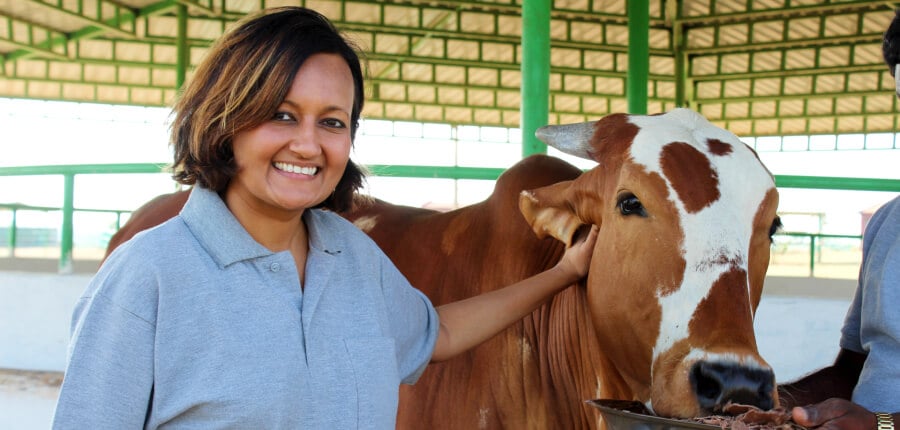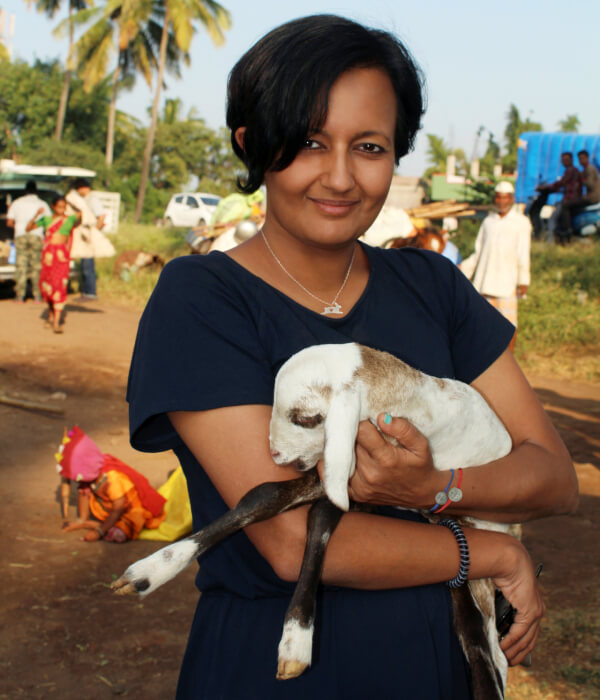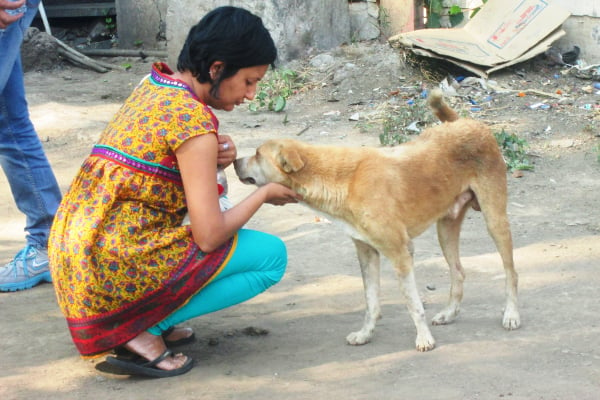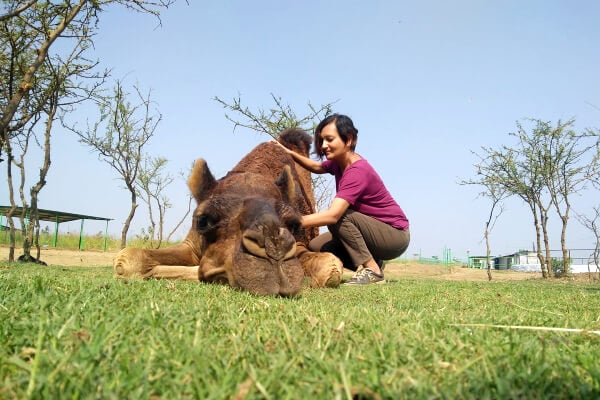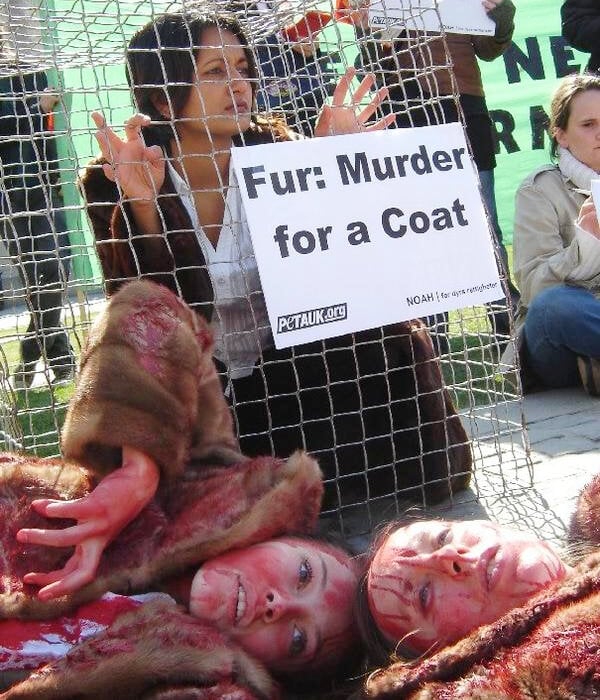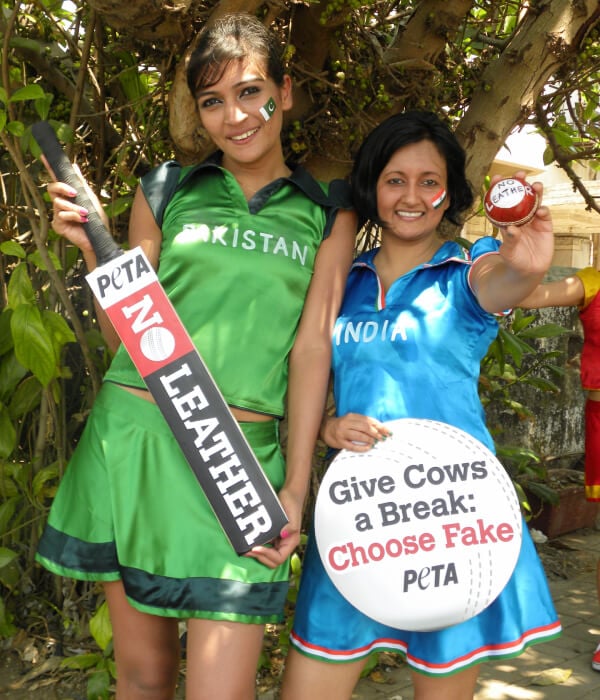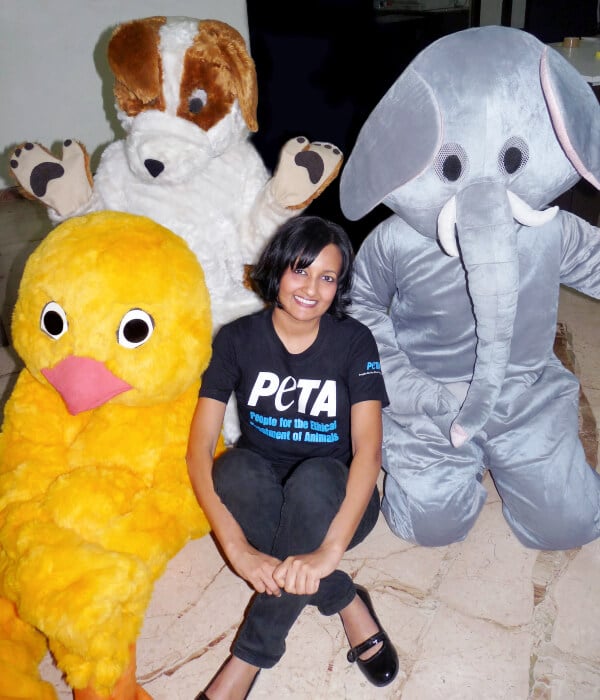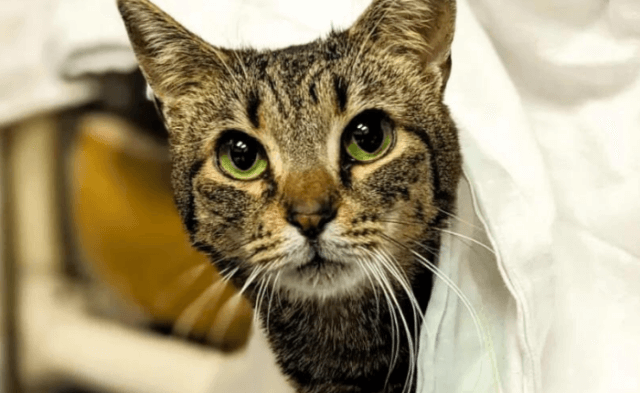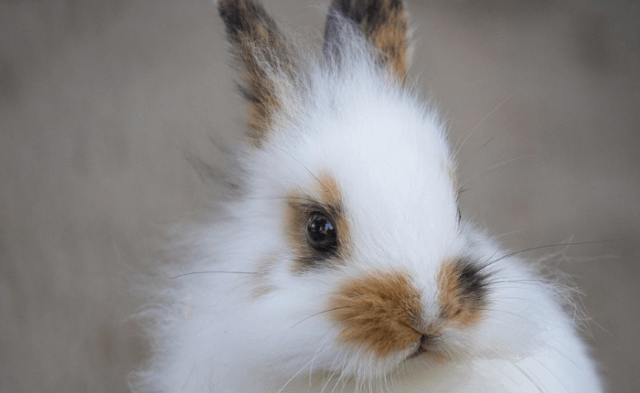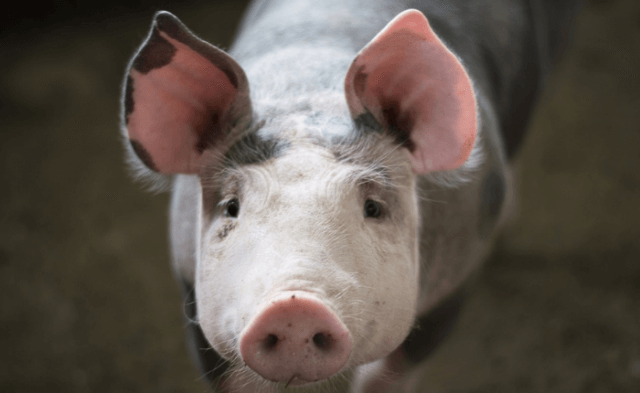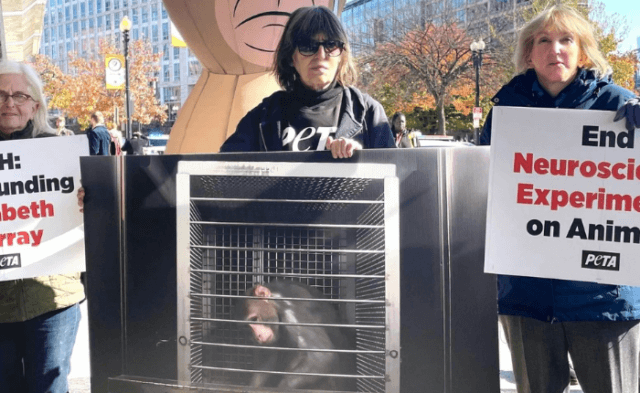Please enjoy this article from the latest issue of our magazine, PETA Global. To begin your subscription, become a PETA member today!
As a child, I often spent summers with my grandfather in Gujarat, India, where I took care of various animals who lived on the streets. Seeing how thin they were, I would ration my own meals to share with them. That’s how I learned that cows can tell time! One in particular showed up at my grandfather’s gate and waited for me to finish dinner at the same time every day. She loved vegetable curry and rice, as well as sweets like ladoos, which I didn’t realize at the time were made with ghee (clarified butter). Years later, I wouldn’t consume dairy if you paid me a million rupees!
The Calf Who Didn’t Want to Die
My career took shape almost 20 years ago, when I visited a slaughterhouse for the first time.
It was in Kolkata. One young bull was fighting hard to stay alive. A group of men surrounded him, pushing and pulling him, his eyes wide with fear as he battled to escape the kill floor. Though just a calf, he understood that he was in grave danger, as he could see the mutilated bodies of other cows ahead. He thrashed and bellowed, but the men only got rougher with him.
They twisted his neck, and he fell to the ground. Then, with a dull knife, they sawed at his throat. He looked at me through the crowd in his last moments as he gasped, making a terrible, haunting guttural sound.
I went back to my hotel and sobbed. That day, I promised myself that I would spend the rest of my life fighting to spare other animals suffering like his.
Battling Bullies
I was there because of a PETA magazine like this one, which had turned me vegan at age 16. However, one of my first tasks at PETA had nothing to do with cows: It was to disrupt a Michael Kors fur fashion show – not something a shy bookworm like me enjoys doing! I leapt onto the catwalk and was immediately arrested. The officers threw me into a cell with an unbearable stench. When I asked to be moved, the guard jeered, “You’re not at the Marriott, honey.”
All animals are dear to me, but cows are particularly close to my heart. It’s not widely known, but they’re often ill-treated in India. Many Indians think good Hindus must drink milk, and Lord Krishna is always depicted with happy cows – not the miserable ones hidden from public view on factory farms. Even “holy cows” suffer when greed corrupts people, as it does everywhere in the world. Dairy is big business, characterized by cruelty that goes against religious morals.
An undercover investigation that I helped launch in India showed cows and buffaloes being artificially inseminated and forced to stand knee-deep in their own waste. Their calves were kidnapped from them, just as they are in every country that produces milk. Female calves are eventually used for milk production, and male calves are left to starve or are killed for meat and leather, which was likely the case with that terrified calf I saw long ago. Their mothers are typically slaughtered, too, once they are no longer profitable.
Years after that first encounter with the young bull, I became the CEO of PETA India. On my watch, India banned bull races, cosmetics tests on animals, dissection at universities, and the importation of exotic skins. Once, my image was burned in effigy by those protesting our bull protection work. When I worked undercover in an Indian laboratory, I had to fend off the sexual overtures of a supervisor while documenting monkeys going insane from isolation in cramped, barren cages. And in one slaughterhouse, workers – armed with knives and axes – tried to intimidate me by shoving animal guts in my face. Still, I knew that no matter how I felt, animals had it much worse. I became resolute, and my shyness vanished.
From Bookworm to Book Author
In 2019, realizing that no one had published a book about animal agriculture in India, I wrote For a Moment of Taste. I want everyone to know that animals are thinking, feeling beings – individuals whose lives are just as precious to them as ours are to us. Humans must stop contributing to their immense suffering and violent deaths just for a moment of taste.
Poorva Joshipura is the Senior Vice President of International Affairs for PETA UK.

